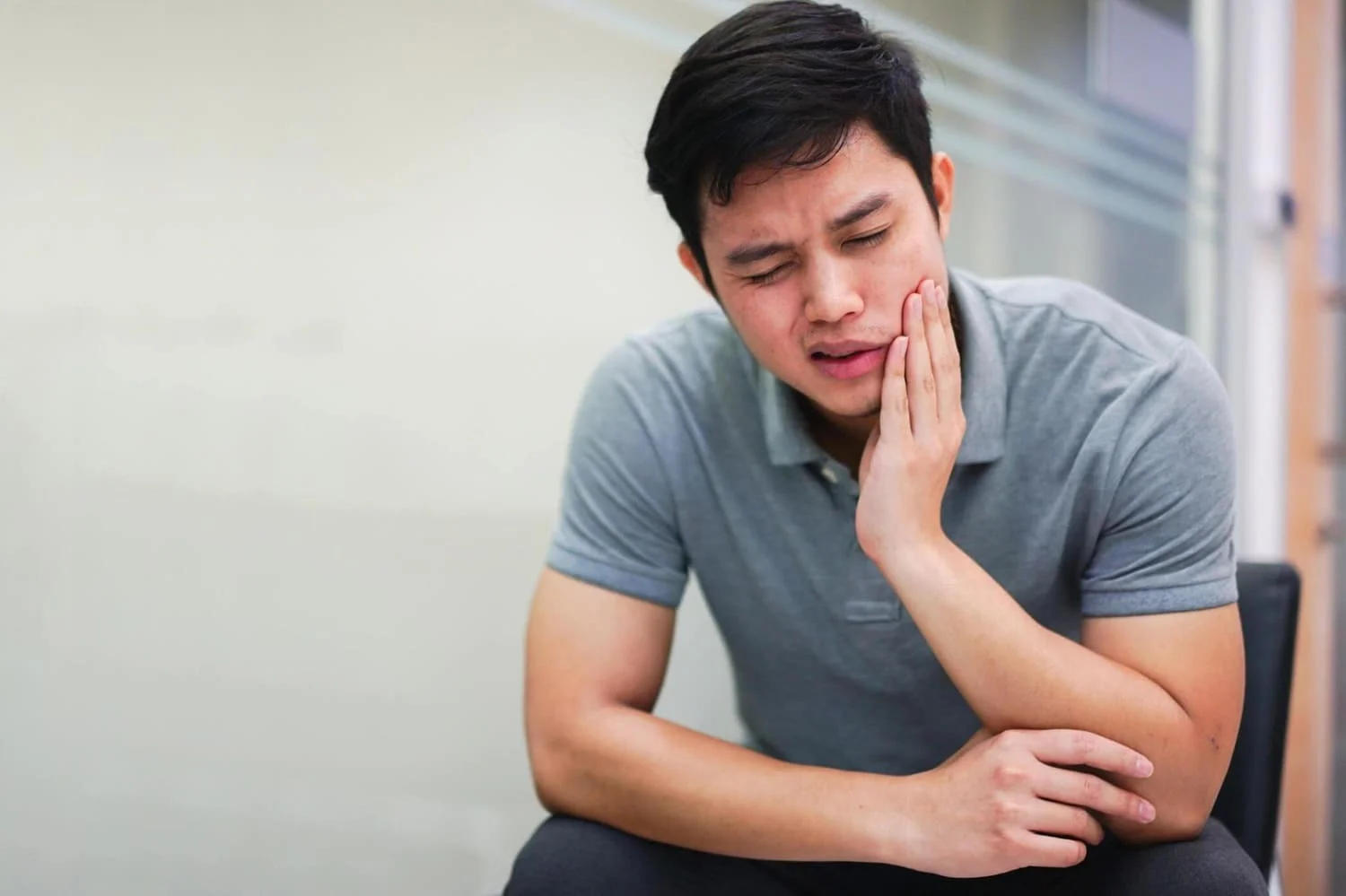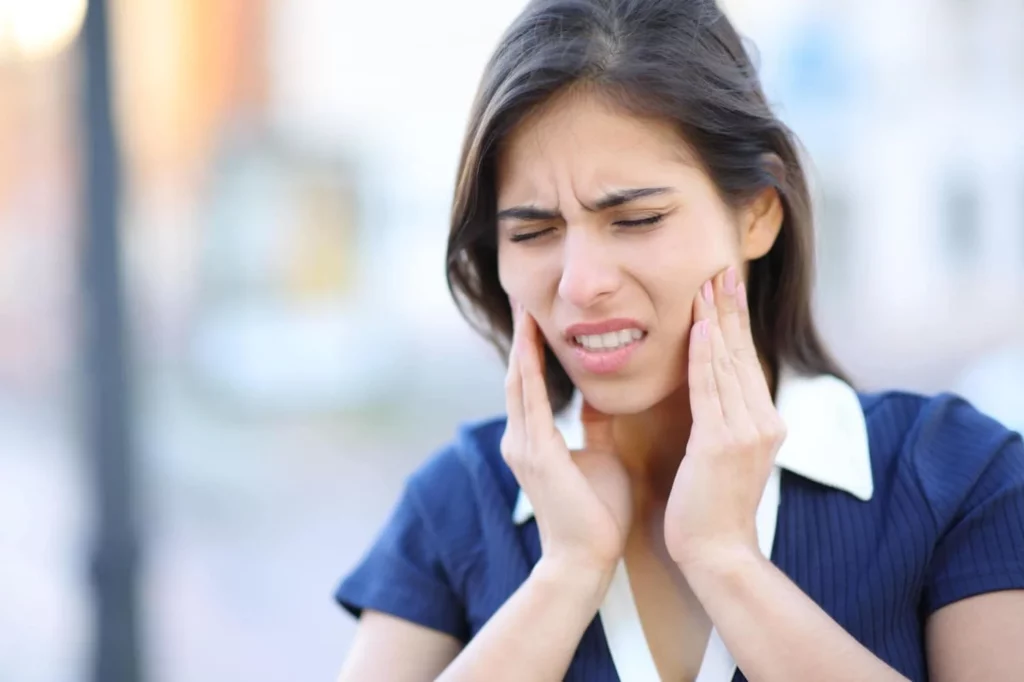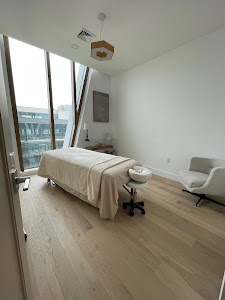Acupuncture for TMJ
Acupuncture for TMJ
What is TMJ?
The temporomandibular joints (TMJ) are two crucial joints that connect your mandible, or lower jawbone, to the temporal bones of your skull, located on each side of your head just in front of your ears. These joints function as sliding hinges, allowing you to perform essential movements such as opening and closing your mouth, chewing, speaking, and even yawning. The TMJ is one of the most complex joints in the human body due to its combination of rotational and translational movements.
Just like any other joint, the TMJ can be susceptible to disorders that cause pain and dysfunction, commonly referred to as temporomandibular joint disorders (TMD). These disorders can arise from a variety of factors, including arthritis, jaw injury, chronic teeth grinding (bruxism), or displacement of the disc that cushions the joint. Stress and anxiety can also contribute to muscle tension around the jaw, exacerbating the condition.
Symptoms of TMD can significantly interfere with daily life. Common signs include aching pain in and around your ear, difficulty chewing or discomfort while chewing, locking of the joint making it hard to open or close your mouth, and a clicking or grating sensation when you open your mouth or chew. In some cases, individuals may also experience headaches, neck pain, or swelling on the side of the face.
What Causes TMJ Disorder

TMJ disorder is a complex condition affecting the temporomandibular joint may be arised by such factors:
- Bruxism (Teeth Grinding). Clenching or grinding teeth, often due to stress, can strain the jaw muscles, leading to TMJ issues.
- Jaw Misalignment. An improper bite or jaw structure can disrupt the smooth function of the jaw joint, causing discomfort.
- Injury or Trauma. A blow to the jaw, whiplash, or impact during accidents can damage the joint, triggering TMJ symptoms.
- Arthritis. Degenerative joint diseases like osteoarthritis or rheumatoid arthritis can affect the TMJ, causing pain and inflammation.
- Habits. Chewing gum excessively, nail biting, or repetitive jaw movements strain the joint, potentially contributing to TMJ disorder.
- Stress. Emotional tension leading to jaw clenching or tightening of facial muscles can exacerbate TMJ symptoms.
Understanding these potential causes aids in piecing together a personalized approach to manage TMJ disorder.
Can Acupuncture Help With TMJ
Acupuncture for TMJ pain offers a holistic approach to reduce discomfort in the temporomandibular joint. By targeting specific acupuncture points, this ancient practice aims to restore balance in the body’s energy flow, easing TMJ-related symptoms.
The unique aspect of acupuncture for jaw pain lies in its ability to address not just the pain itself but also the underlying imbalances contributing to TMJ disorder. Acupuncture sessions involve precise needle placement on points related to jaw relaxation, stress reduction, and pain relief.
While experiences usually vary, some find relief from TMJ pain through acupuncture due to its potential to relax tense muscles, improve blood flow, and stimulate the body’s natural healing responses. However, it’s important to approach TMJ acupuncture as a complementary therapy alongside other TMJ management strategies, such as jaw exercises, lifestyle adjustments, or dental treatments, for a comprehensive approach to address TMJ discomfort most effectively. Consulting a qualified acupuncturist can help create a personalized plan to manage TMJ-related issues.
Benefits of Acupuncture for TMJ
Acupuncture for TMJ brings unique benefits:
- Pain Relief. Targeting specific pressure points for TMJ, acupuncture aims to reduce jaw pain by stimulating the body’s natural pain-relieving mechanisms.
- Muscle Relaxation. Acupuncture sessions promote muscle relaxation in the jaw area, reducing tension and stiffness commonly associated with TMJ.
- Improved Circulation. By enhancing blood flow to the affected area, acupuncture may aid in reducing inflammation and supporting the healing process in the temporomandibular joint.
- Stress Reduction. Acupuncture TMJ calming effect may help reduce stress levels, contributing to decreased jaw clenching or grinding often linked to this disorder.
- Holistic Approach. Beyond symptom relief, acupuncture addresses the imbalances contributing to TMJ, aiming for lasting improvement.
Acupuncture for TMJ, while offering potential benefits, works uniquely for each individual. It’s often recommended as part of a broader approach to managing TMJ symptoms.
Experience the Best Acupuncture for TMJ at Pulse Acupuncture Center

At Pulse Acupuncture Center, experience a personalized approach to managing TMJ discomfort through acupuncture Brooklyn. Our practitioner offers sessions aimed to solve TMJ-related issues, focusing on targeted pressure points and precise techniques to address jaw pain.
Moreover, our practitioner’s expertise combines traditional acupuncture TMJ techniques with a modern understanding of TMJ symptoms. This fusion of ancient wisdom and contemporary knowledge ensures a holistic and informed approach to easing jaw pain and restoring comfort.
In our welcoming environment, we strive not just to reduce TMJ discomfort but to heal our patients both physically and mentally. Trust Pulse Acupuncture Center to provide sessions, dedicated care, and a compassionate approach in addressing TMJ-related concerns effectively.
-
Marina Doktorman, M.S., L.Ac., is an experienced acupuncturist who obtained her Masters of Acupuncture from the Tri-State College of Acupuncture in New York City in 2001. During her studies, she focused on Chinese Herbology, a branch of Traditional Chinese Medicine (TCM) that utilizes herbs to complement acupuncture treatments. Marina is licensed in both New York (NY) and New Jersey (NJ) and holds a Diplomate of Acupuncture from the National Certification Commission for Acupuncture and Oriental Medicine (NCCAOM), indicating her expertise in the field.
Why Pulse Acupuncture?

Experience
Marina Doktorman, L.Ac. has over 20 years of clinical experience.

RELAXATION
At Pulse Acupuncture, we aim to cultivate a spa-like environment.

Comfort
All of our needles are of the highest quality for painless insertion.
Patient Reviews in Brooklyn


I had the pleasure of working with Marina, Laryssa, and Jaesung, and they have all been absolutely amazing. Thanks to this incredible team, I can now sit, drive, walk, sleep comfortably, and function normally again. I truly don’t think I’d be where I am today without their care and expertise.
Pulse Acupuncture has become my go-to place for anything pain-related. The entire team is warm, compassionate, and professional, with outstanding bedside manners.
I highly recommend Pulse Acupuncture to anyone experiencing pain and looking for effective, non-invasive treatment. Truly life-changing! 😊











Marina is very accommodating, kind, and attentive, and her staff is a pleasure to deal with. I highly recommend Pulse.














Acupuncture has truly changed my life and has helped me in ways I didn’t even know were possible.
I started doing acupuncture to balance my hormones after 2 years of unsuccessful fertility treatments. When I started seeing Marina, my periods were starting to be regular and I was dealing with a few different symptoms which we started treating right away (constipation, random headaches, body aches)… in the last 3 years I have not been sick (no flu, have never tested positive for COVID) - Marina even treated me for allergies more than a year ago during an allergy episode in changing seasons.
Also want to mention Larissa as I started seeing her in Marina’s beautiful office and she’s also contributed to my wellness journey. Acupuncture is my favorite wellness practice, I see them regularly and have never felt better. I sometimes just tell them whatever I’m thinking/feeling knowing they will stick some needles in different places of my body and I come out floating and feeling so relaxed.




Excellent service- great results- highly recommended ~!





Marina is not only incredibly knowledgeable, but also very calming and has great bedside manners. If you're looking for a fantastic acupuncturist I can't recommend her enough!!













After 10 minutes of the procedure, you get into a different reality. Marina is knowledgeable, answers all the questions. After the procedure, the skin of the face glows, the body becomes lighter by a couple of pounds. I've been looking for such a procedure and state of mind for a long time.


I am beyond grateful to Marina, because after trying so many things, I almost lost hope. highly recommend Pulse Acupuncture and Marina for anyone seeking relief from pain or other health concerns.
The acupuncture sessions themselves are incredibly relaxing and therapeutic. Marina's gentle touch and precise needle placement always leave me feeling calm and rejuvenated. She also incorporates other techniques, such as cupping, which have been very beneficial for my overall health and wellbeing.
In addition to her skill as an acupuncturist, Marina is also a wonderful person to work with. She is warm, friendly, and genuinely cares about her clients' wellbeing. I always leave our sessions feeling refreshed and uplifted, both physically and mentally.
Overall, I highly recommend Pulse Acupuncture and Marina for anyone looking for high-quality acupuncture and personalized care. Thank you, Marina, for your exceptional service and dedication to helping others achieve optimal health!
TMJ Acupuncture - FAQ
How can acupuncture help with TMJ disorder?
Acupuncture is an alternative therapy that involves the insertion of thin needles into specific points on the body. It can help alleviate TMJ symptoms by reducing muscle tension, improving blood flow, and promoting relaxation.
Is acupuncture effective for TMJ disorder?
While acupuncture may provide relief for some individuals with TMJ disorder, its effectiveness can vary from person to person. Some people report significant improvement in pain and jaw function, while others may not experience as much benefit.
Are there any risks or side effects associated with acupuncture for TMJ?
Acupuncture is generally considered safe when performed by a trained and licensed practitioner. However, there may be minor side effects such as temporary soreness, bruising, or slight bleeding at the needle insertion sites. Serious complications are rare.
Can acupuncture be used alongside other TMJ treatments?
Acupuncture can be used in conjunction with other TMJ treatments, such as physical therapy, jaw exercises, and lifestyle changes. It’s essential to consult with a healthcare provider who can help create a comprehensive treatment plan tailored to your needs.
Contact us
Acupuncture therapy at Pulse Acupuncture Practice, at Clifton, NJ and Williamsburg, Brooklyn, NYC offers unique combination of various cupuncture types for healing on all levels: emotional, spiritual and physical by integrating ancient wisdom of energy healing with modern acupuncture techniques.


